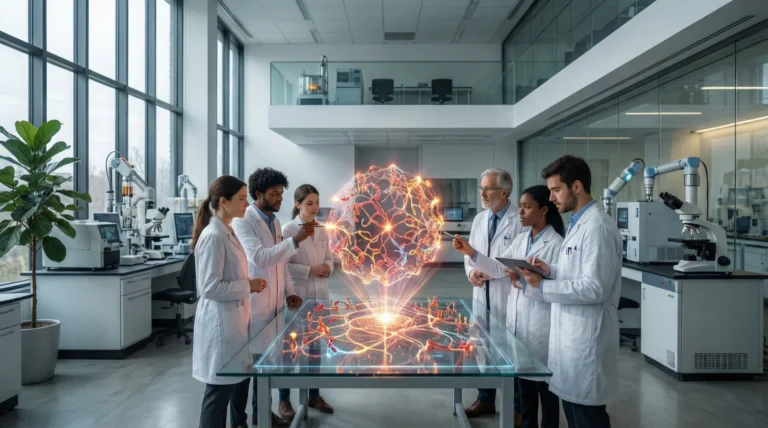
Insitro, a machine learning-driven drug discovery and development company, announced today that it has received $25 million from Bristol Myers Squibb (NYSE: BMY) following the achievement of discovery milestones and the selection of the first novel genetic target for amyotrophic lateral sclerosis (ALS). This target was identified and validated by insitro as part of their ongoing collaboration, which began in 2020. The partnership aims to discover new therapies for ALS, a disease that currently has no disease-modifying treatments.
Amyotrophic lateral sclerosis (ALS) is a devastating, sporadic disease that leads to the progressive degeneration of nerve cells in the spinal cord and brain. It causes muscle spasms, impaired speech, gait issues, and eventual respiratory failure. With a life expectancy of just three to five years from diagnosis, all cases of ALS are fatal.
To address the complexities of ALS biology, insitro developed a machine learning (ML)-enabled platform for drug discovery, featuring three proprietary elements:
- A collection of over 200 engineered and patient-derived ALS cell lines representing a diverse range of ALS genetics, along with a unique protocol for rapidly differentiating motor neurons to model the disease.
- High-content imaging capabilities optimized for ML to identify disease mechanisms.
- A proprietary, ML-powered technology for pooled optical screening in human cells (POSH) to identify genetic modifiers of disease-relevant cellular phenotypes.
Using this platform, insitro’s researchers identified several novel gene targets capable of rescuing functional deficits seen in ALS patients. By knocking down these targets, the researchers reversed protein and RNA profiles characteristic of ALS pathology, as seen in patient spinal cords. These effects were also confirmed in ALS patient-derived cell lines. The first validated target from this collaboration is now advancing into drug discovery, with additional targets under investigation.
“ALS is a tragic and debilitating disease. Identifying high-conviction, transformative targets for such a complex condition is a testament to insitro’s disease models and cell-ML platform,” said Daphne Koller, Ph.D., founder and CEO of insitro. “The hard work of our team, coupled with the strong partnership with Bristol Myers Squibb, has enabled us to uncover valuable insights and potential targets that could lead to effective treatments for ALS.”
Richard Hargreaves, Senior Vice President and Head of Bristol Myers Squibb’s Neuroscience Thematic Research Center, added, “Bristol Myers Squibb is dedicated to advancing neuroscience by focusing on validated targets linked to causal human biology. We look forward to collaborating with insitro to progress drug discovery for this novel ALS target and address unmet patient needs.”
The collaboration’s next steps involve advancing therapeutics targeting the newly selected ALS target. Bristol Myers Squibb will lead the clinical development of the program and has the option to select additional targets.
Under the terms of their agreement, insitro received a $50 million upfront payment and is eligible for over $2 billion in further milestone payments, as well as royalties on net product sales.
About insitro
insitro is a machine learning-driven drug discovery company focused on developing new therapies by integrating human and cellular data with AI and ML. The company is advancing genetic targets and therapeutic hypotheses in areas like metabolic diseases, neurodegeneration, and oncology. With over $700 million raised, insitro is building a pipeline through its platform, aiming to deploy AI models for smaller, more efficient clinical trials.




